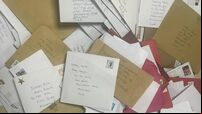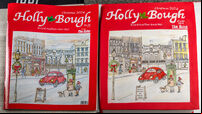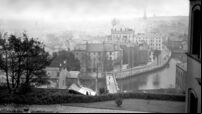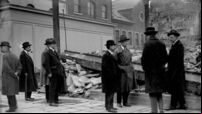A soldier’s life: Cork's Bob Seward recalls Ireland’s first mission to the Congo
Bob Seward, who rose to the rank of Captain in the army, is also a legend in Cork music circles, having developed the Cork Academy of Music as a voluntary organisation to provide a school of music in the northside of Cork city and being instrumental in the development of the International Jazz Summer School
“The military torch fired my imagination and my ambition to be a soldier was forged into a solid steel of ambition,” he its.
Little wonder then that, at the first opportunity, he quit formal schooling and ed the rank and file of the army.
He was just 16.
When he retired, 27 years later, at the tender age of 44, he had reached the pinnacle of rank (at that time) as Captain.
Bob insists that the army was the best training ground which has served him well throughout his long and varied careers.
By international standards, the Irish Army, first established in 1922, is a relative baby.
However, it boasts “some of the most highly trained and skilled peace-keepers in the entire world.”
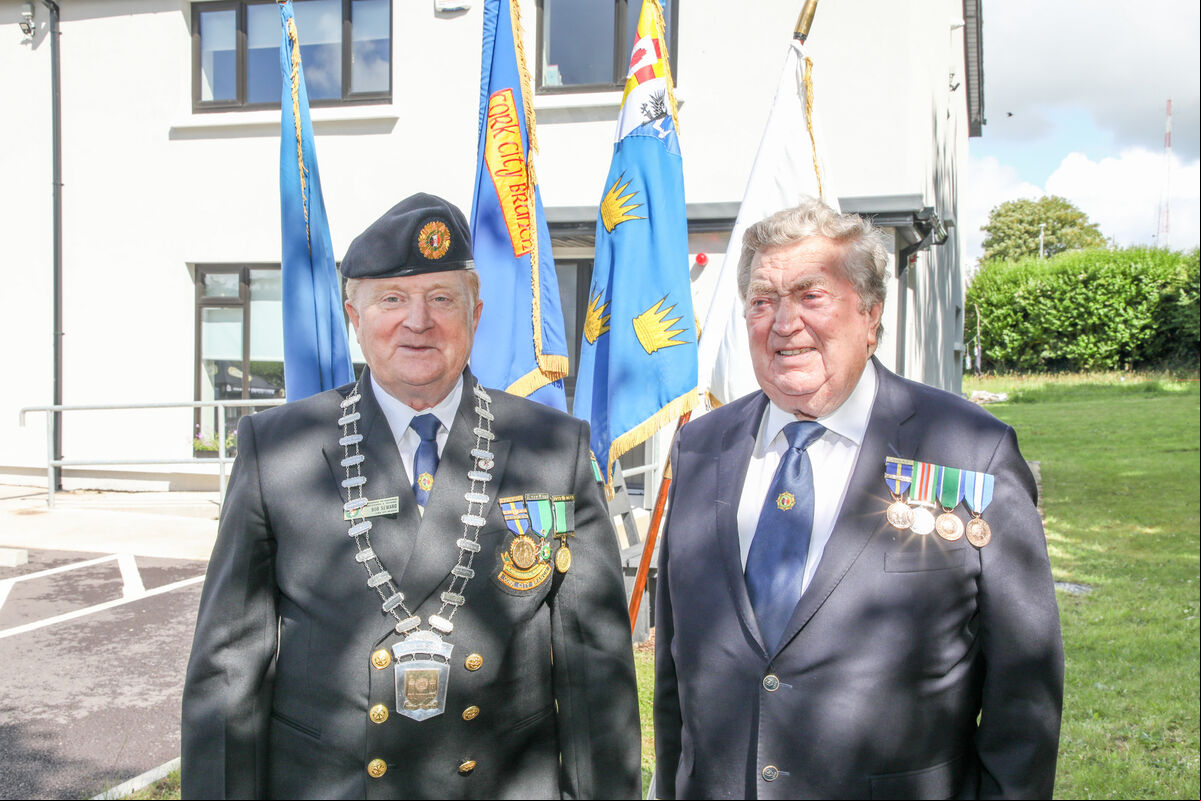
Since its first operation with the UN in Lebanon in 1958, the Defence Forces has continued to play a significant role in peacekeeping operations in conflict zones around the world.
The Congo remains a defining moment in those efforts.
Once a Belgian colony, the Congo became an independent state on June 30, 1960.
About 52 times the size of Ireland, it boasted a wealth of natural resources like gold, uranium, and diamonds, which made it a target for opportunists.
The Mouvement National Conglais’ Patrice Lumumba had taken office as prime minister a short time before the granting of independence, and within days the newly independent Republic of the Congo was plunged into mutiny and chaos.
Civil war was declared between two provinces, South Kassai and Katanga, and the army fell into disarray.
The country was spiralling out of control and Lumumba looked to Russia for firepower and to help contain the rebellions.
With world tensions high, and eager to prevent a further escalation of the ongoing Cold War between the superpowers of the US and Russia, the United Nations decided to intervene and assemble peacekeepers from nations around the world to help the Congolese to re-establish order.
The Irish Army was one of the first to answer the call.
It was the first ever time the Irish Army had sent armed soldiers overseas and they asked for volunteers.
“80% of the garrison in Collins Barracks volunteered for the overseas duty. Nationally too,” says Bob.
The married men had a more challenging task, however: to tell their wives that they were going off for six months to the Congo.
“In my case, I tried to soften the blow by saying I was going for 24 weeks.”
The impact on the wives was huge. With no immediate means of communication (no phones, and letters took weeks to arrive) with their husbands, they shouldered the full responsibility of the family, bill-paying, doctors, and school while their husbands were away.

It took weeks of planning, vaccinations, dental checks, and packing, before Bob‘s unit (B-Company), made up of a contingent from Limerick, Fermoy, Ballincollig and Collins Barracks, travelled to the Curragh to converge with all the other units from around Ireland, to form the 750-strong 32nd Battalion, under the command of Lt. Col M Buckley.
It was a time of immense collective pride.
“The whole country was behind us,” he says.
The jubilant sound of the marching bands and the cheers of the thousands who lined the streets of Dublin to watch them march from Dublin Castle is still indelibly etched on Bob’s memory.
The national euphoria couldn’t dull the general apprehension for the safety of these brave soldiers, however, and Bob says, “women came forward and pressed religious objects into our hands as we got into the trucks to go to Baldonnel airport”.
There, a USAF Globe Master plane awaited.
Before they boarded, each of the men was issued with a plastic bag containing “a bottle of milk, two sandwiches, an apple and an orange.”
Bob recalls the young American pilot asking how many had flown before, and “not a single one of us had.”
In the meticulous planning for the operation, from the packing of shovels, pick axes, ammunition, and tinned food, it was soon apparent that no-one had considered the appropriateness of the heavy woollen Irish-army uniforms in the thick heat of the Congolese jungle.
“We were sweltering when we landed in Wheelus airport, a US air base, in Tripoli, Libya.”
The Americans, commenting to the Irish soldiers on their “great combat clothing”, jokingly asked if they were headed for the North Pole.
When they finally landed in Leopoldville, now known as Kinshasa, in the Congo, there was much excitement as they were ed by troops from all over the world.
B Company was first stationed in Kindu, a small town on the banks of the river Congo. They secured the airport and set up accommodation in the aircraft hangar. For a few weeks, they survived on nothing but tinned food.
The intensity of the jungle heat was on a whole other level, and they were grateful to the Americans who flew by, some weeks later, with replacement work dungarees which they cut up into shorts.
“There was total turmoil in the country. The Congolese army was running amok. They were unpaid for weeks. They had weapons and ammunition but no leaders,” explains Bob.
“Our purpose there was security: to keep the airstrips open and rescue some Dutch missionaries and fly them home safely.”
But, it was a decidedly precarious and hostile environment, and the soldiers were always on alert or slept with their weapons.
“Communication was tricky, given that the locals only spoke Swahili and French, and we could barely speak English,” laughs Bob.
However, hand gestures and intent allowed for clumsy, but effective, communications between the native Congolese and the Irish soldiers.
“The Irish were highly trained and very adaptable,” explains Bob.
This set them apart. It was also a source of immense pride to see soldiers from other nations salute the officer in charge of the entire mission, Lt Gen Sean McKeown from Ireland.
The 32nd Battalion was ed a few weeks later by the 33rd Irish battalion.
“My grandad re boarding the plane again and crying as he didn’t know how long he would be away from home,” recorded Cathal.
Jim’s unit was stationed in Albertville, overlooking the beautiful Lake Tanganyika.
“Soldiers’ life in the Congo was full of ups and downs,” according to Jim.
From feasting on the stunning natural beauty of the distant mountains reflected in the moonlit water, or large elephants majestically wandering the plains, to the dangers of encountering a piranha lurking in the lake, having outdated 303 rifles (relics from WW1) as protection, to the dangers of the intense midday sun. Each day brought its own challenges.
On November 8, 1960, nine of an Irish troop, on routine duties, were ambushed and massacred by Baluba tribesmen.
Bob re hearing the news and being so angry as some of those killed “had been with us some time before that.
“The friendly spirit, so characteristic of the Irish overseas, was badly shaken that night,” he insists.
“My grandfather, Jim, was among the troop that travelled to the ambush site to help recover their slain comrades,” says Cathal.
A memorial service was held in their honour before they were flown back to Ireland to a hero’s welcome. One striking newspaper headline read, The Grief and the Glory.
“To date, there have been 33 soldiers from the Southern Command who received distinguished service medals. There have also been 87 soldiers killed in active UN service, three of whom received posthumous awards for gallantry. That’s why this is very important to me, and to the army. They had very little publicity and appreciation.”
